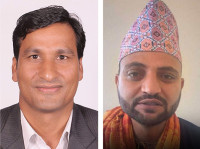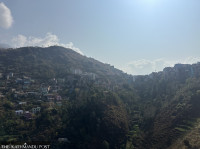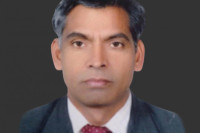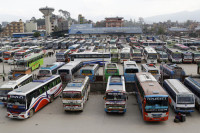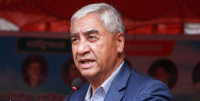National
Constitution Amendment: PM proposes House panel to end dispute
Prime Minister Pushpa Kamal Dahal has proposed to end the boundary row through a parliamentary panel after a failed bid to take the main opposition UML and Samyukta Loktantrik Madhesi Morcha into confidence over the constitution amendment.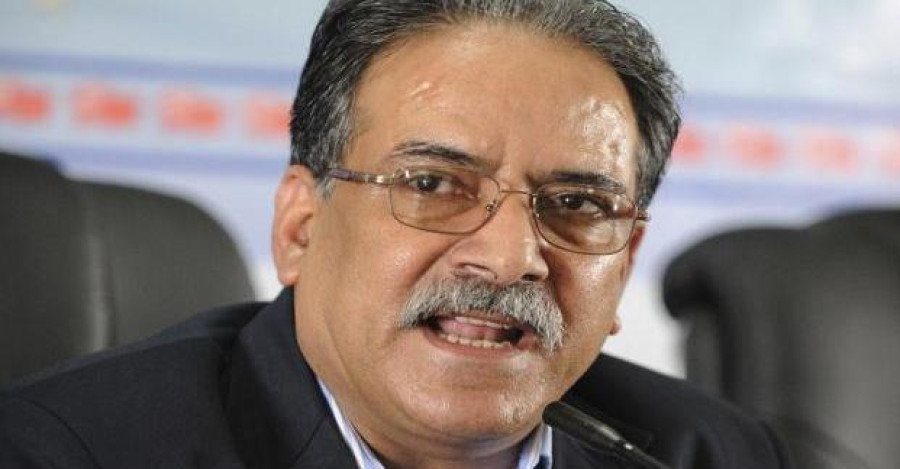
Roshan Sedhai
Prime Minister Pushpa Kamal Dahal has proposed to end the boundary row through a parliamentary panel after a failed bid to take the main opposition UML and Samyukta Loktantrik Madhesi Morcha into confidence over the constitution amendment.
The proposal, described as a “middle way” to end the current political wimpasses and open doors to local elections, seeks to amend clauses pertaining to language, citizenship, and representation in the Upper House—three remaining issues covered by the constitution amendment bill tabled in Parliament.
Besides, the government has also proposed a further amendment to the constitution curtailing the power of the chiefs and deputy chiefs of the village and municipal councils, who serve the role of Electoral College in the federal setup, to take part in the formation of the national assembly. PM’s close aides said that it would address Morcha concerns over the local boundaries. The Morcha has been demanding proportionate distribution of local units between the hills, mountains and Tarai based on population.
PM’s Chief Political Advisor Chakrapani Khanal said that clauses related to boundaries would be amended following the local elections. He said that both the UML and Morcha should show flexibility in their stance to end the stalemate. “We don’t have many options on hand. Both the UML and Madhesi Morcha should come to a comprising point if they want timely elections,” Khanal told the Post.
According to Khanal, PM Dahal said that the date of local elections will be announced only after reaching an agreement with the two opposition blocs, signalling that the government may miss the self-imposed deadline of January-end. PM Dahal had initially planned to put the bill to the vote in Parliament, but he is learned to have backtracked on that following pressure from within the governing alliance. Like the UML, many lawmakers from the governing CPN (Maoist Centre) and Nepali Congress have stood against the amendment.
Government negotiators are hopeful of UML’s support on the proposal despite its demand to roll back the bill. The party is leading the protest in the western region against the split of hill districts from the plains.
Morcha leaders, on the other hand, have insisted that the amendment bill should be endorsed in its current shape. “The amendment bill is incomplete in itself. We think that it should be revised before putting for the vote. If it’s not possible, it should be amended as it is,” Sadbhawana Party Chairman Rajendra Mahato told the Post.
The Morcha leaders have also stood against the proposal to curtail the power of the village and municipal councils, describing it as a design to deny rights to Madhes. They claim that curtailing the power of the electoral college would make the new federal units hardly any different from the old ones.
“Three major parties are basically trying to impose old structure under the new name. What is the purpose of federalism when you want to give the new name to old local structures with limited power?” questioned Sanghiya Samajwadi Forum Nepal Chairman Upendra Yadav.
But interlocutors from the governing parties claim that Morcha leaders are positive on the demands.
“We have found them positive on our proposal. Both the UML and Morcha should relent from their current position to open doors for local elections,” said Khanal.




 11.5°C Kathmandu
11.5°C Kathmandu

